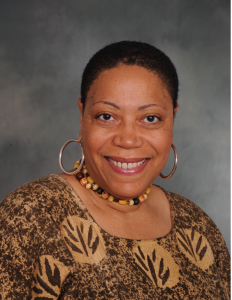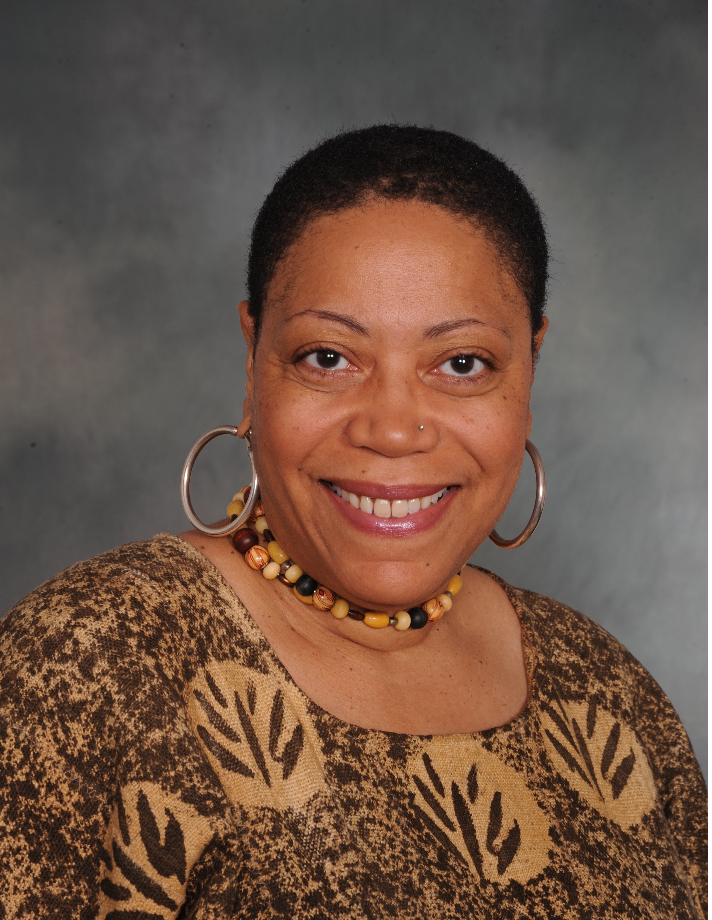Standing at the Intersection of Faith & Sexuality – by Toni M. Bond Leonard
 In her critically acclaimed book, Sexuality and the Black Church, noted scholar and theologian Kelly Brown Douglas calls for a “sexual discourse of resistance” as a way to “expose the manifold impact White culture has on Black sexuality” (Douglas 69). Douglas is calling for a discourse that would begin to examine and erase the lasting remnants of White culture’s reproductive violation and degradation of Black women and inhumane portrayal of Black men as nothing more than sexual predators during slavery. Douglas theorizes that White culture’s sexual exploitation of Black women and men has impacted Black sexuality in ways that have not only damaged the Black community’s self-esteem, but also has rendered the Black community completely unable to discuss the issue of sexuality (73).
In her critically acclaimed book, Sexuality and the Black Church, noted scholar and theologian Kelly Brown Douglas calls for a “sexual discourse of resistance” as a way to “expose the manifold impact White culture has on Black sexuality” (Douglas 69). Douglas is calling for a discourse that would begin to examine and erase the lasting remnants of White culture’s reproductive violation and degradation of Black women and inhumane portrayal of Black men as nothing more than sexual predators during slavery. Douglas theorizes that White culture’s sexual exploitation of Black women and men has impacted Black sexuality in ways that have not only damaged the Black community’s self-esteem, but also has rendered the Black community completely unable to discuss the issue of sexuality (73).
For the past twenty years, I have worked within the reproductive health, rights, and justice movements providing services to and advocating on the behalf of women of all races and faiths. The bulk of my work has been to work toward bringing reproductive justice to the lives of Black women who have some the highest reproductive health disparities. Abortion rates for Black women are 40 per 1,000 (Jones and Kavanaugh). It is important to understand that Black women in the U.S. have higher rates of unintended pregnancies than any other ethnic population. In 2006, the rate of unintended pregnancies among Black women was 91 per 1,000 (Finer and Zolna). Equally disconcerting is the fact that rates of HIV are also higher among Black women. The Centers for Disease Control reports that in 2009, Black women accounted for 30% of the new HIV case reported (CDC). The rates of sexually transmitted infections are similarly high. The U.S. Department of Health and Human Services Office on Women’s Health reports that Black women have rates of Chlamydia and Gonorrhea that are seven and sixteen times higher, respectively, than White women (USHHS). Despite these grim statistics, the Black church refuses to discuss issues of reproductive and sexual health. These reproductive health disparities are not a reflection of Black women’s irresponsibility. To the contrary, they are an embarrassing stain upon the Black community and the Black church, in particular, owing to their refusal to discuss these important health issues. The fact of the matter is that the church is doing Black women and men a grave injustice by not discussing issues of reproductive and sexual health.
I have always questioned how the faith community, especially the Black church, can blatantly ignore the fundamental needs of the population that actually keeps the Black church as an institution thriving. Black women comprise the majority of the Black church’s membership (although the same is not reflected within its leadership) and they provide the lion’s share of support, financial and otherwise, needed to keep the institutional doors open. Despite their unwavering commitment, Black women cannot get issues of reproductive and sexual health taken up within the Black church; at least not in any meaningful way. It is well past the time for the Black church to embrace a reproductive justice framework.
In 1994 Black women, including women of faith, coined the phrase “reproductive justice” and laid the initial foundation for the framework. The reproductive justice framework creates the conditions for women to be healthy, have healthy families, and to live in healthy communities. It is grounded in the belief that all women have the human right to determine when and whether to have a child, have the human right to access contraceptive methods to help them space childbearing, and have the human right to the social and economic supports to parent the child or children they already have. Finally, the reproductive justice framework recognizes the expertise of women through their lived experiences and supports their personal agency as leaders in their families, communities, and broader society.
In keeping with the reproductive justice framework, there is a clearly defined role and responsibility of the church to minister to the needs of God’s people. The very essence of who we are as women is our reproductive health. God gave women a unique gift and power that our male counterparts do not have, the ability to bring forth human life. As such, the church, in upholding its responsibility to directly meet and minister to God’s people has a sacred duty to provide the vital information that women and girls need to lead healthy reproductive lives. This includes information about basic reproductive anatomy, understanding our menstrual cycles, controlling our fertility, and healthy sexuality.
The reproductive justice movement needs an influx of progressive-thinking faith leaders and Black churches who will proactively stand at the intersection of faith and sexuality. In this role, faith leaders would provide people of faith with teachings about healthy, sacred relations grounded in trust, respect, mutual consent, and love. Instead of conversations demonizing sexual orientation or specific sexual acts, spiritual teachings would promote the acceptance of people of different sexual orientations and speaking out against the injustices of heterosexism and homophobia. In the place of hell-fire and brimstone sermons about the ramifications of fornication, pastors would preach sermons encouraging women and men to treat their bodies as sacred temples by practicing safe sex.Their sermons would promote discussion and understanding of the dynamics of domestic and sexual violence (including instances of violence against women in the Bible), and encourage open and honest conversations about sexual preferences, contraceptive methods to reduce the risk of unintended pregnancy, and prevention of the transmission of HIV and other sexually transmitted infections. Finally, these progressive-thinking faith leaders would compassionately listen to and support women who are faced with unintended pregnancies and who are weighing reproductive options that include abortion. Rather than shame or blame them into carrying an unwanted pregnancy to term, faith leaders would help them come to terms with and find peace in whatever decision they make. For those women who decide to continue their pregnancies, assistance beyond the perfunctory baby basket with diapers, bottles, and the cute pink or blue baby outfit would be given. The progressive-thinking faith leader would understand that beyond the “oh so cute” gift is a need for access to the social and economic support needed to house, clothe, and feed the child.
What the faith community fails to realize is that to remain silent about reproductive and sexual health is to be silent about the essence of human existence. In truth, this is the gravest act of injustice and sin, the refusal to provide individuals with the support and information they need lead healthy lives. This silence presses down upon the face of the Black church, both strangling and simultaneously, binding the church’s tongue from having any frank discussion about reproduction and sexuality beyond the immaculate impregnation of the Virgin Mary by the Holy Spirit or the fall of Adam and Eve in the garden of Eden.
The Black faith community holds an even greater weight of responsibility to discuss and promote the reproductive and sexual health and autonomy of Black people given the reproductive and sexual atrocities committed against Black women and men by White culture during slavery. Instead, the Black church continues to bury its head in the sand and ignore calls by womanist theologians like Douglas and many others for a deeper discourse.
Part of the Black church’s challenge is that it has bought whole-heartedly into White culture’s Victorian notion of what sexuality and gender roles should look like. This puritanical dogma is one of the lasting remnants of White culture that carries the double-edged sword of denying our sexual existence and reproductive autonomy and vilifying Black bodies. The Black community and its faith institutions have not figured out how to move beyond the shame associated with Black female and male bodies or how to take back the power of Black peoples’ sexuality stolen through slavery and other forms of reproductive oppression. The end result has been that the Black community is suffering from a sort of reproductive and sexual psychosis that demands sexual purity and chastity on the one hand and the realization of our desire to truly embrace God’s gift of human sexuality in all of its fullness. Part of the solution is for the Black faith community to stand in the gap to help eradicate this neurosis and lovingly lead Black people into compassionate conversations about human reproduction and sexuality – conversations which will empower God’s people to handle the wonderful gift of human sexuality prayerfully and responsibly.
References
Centers for Disease Control. HIV Among African Americans. Atlanta, November 2011. Web.
Douglas, Kelly Brown. Sexuality and the Black Church. Maryknoll: Orbis, 1999. Print.
Finer, L.B. and M.R. Zolna. “Unintended Pregnancy in the United States: Incidence and Disparities.” Contraception 84.5 (2011): 478-485. Web.
Jones, R.K. and M.L. Kavanaugh. “Changes in Abortion Rates Between 2000 and 2008 and Lifetime Incidence of Abortion.” Obstetrics and Gynecology 117.6 (2011): 1358-1366. Web.
U.S. Dept. of Health and Human Services Office on Women’s Health. “Minority Women’s Health.” Sexually Transmitted Infections (STIs). Web. Washington.March, 2012.
Toni M. Bond Leonard is the co-founder and former President/CEO of Black Women for Reproductive Justice. An organizer and strategist, she has served on the boards of national women’s organizations such as SisterSong, the Trust Black Women Partnership, the National Network of Abortion Funds, and the Guttmacher Institute. In 1994, she was one of several Black women who coined the phrase, “Reproductive Justice,” which laid the groundwork for a whole new framework to advance reproductive health and rights. The work of her organization is included in the book, “Undivided Rights: Women of Color Organize for Reproductive Justice,” which documents the history of women of color. Ms. Bond Leonard is preparing to begin graduate studies with a focus on Liberation/Womanist Theology and Religion, Ethics, and Society.

